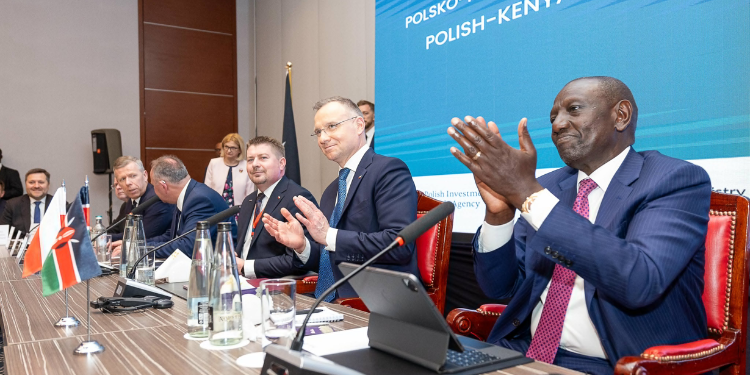The Kenya Kwanza administration under President William Ruto has secured a remarkable series of trade, investment, and mobility agreements with some of the world’s leading economies, including the United States, China, Japan, Germany, the United Arab Emirates, the United Kingdom, South Korea, and the Netherlands.
These deals encompass infrastructure, clean energy, skills mobility, and market access, reflecting a foreign policy that prioritizes strategic partnerships based on mutual economic benefits.
Kenya and Japan
Kenya and Japan continue to deepen a partnership that has lasted over six decades. Japan is now Kenya’s third-largest development cooperation partner, having contributed more than USD 5 billion (approximately Ksh650 billion) toward transformative projects in the country. This financing has supported major projects, including the geothermal expansion in Olkaria, port upgrades at Mombasa, and the development of the Dongo Kundu Special Economic Zone.
Over 120 Japanese firms are already operating in Kenya, drawn by the country’s strategic position in East Africa, growing infrastructure, robust capital markets, and skilled workforce.
At the Kenya Investment Forum in Yokohama, held on the sidelines of TICAD9 in August 2025, President Ruto emphasized Kenya’s openness to business. He singled out opportunities in digitization, healthcare technology, precision agriculture, electric vehicle manufacturing, and green industrialization.
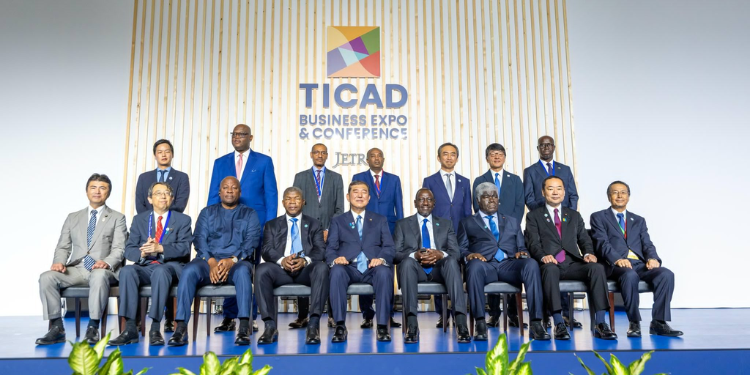
Kenya is scaling its collaboration with Toyota Tsusho Corporation to support e‑mobility. The plan includes procuring 5,000 electric (or e‑mobility) vehicles for Kenya’s police and government officials and laying the foundation for local assembly and eventual full manufacturing of EVs. This move is part of Kenya’s broader push to be a hub for sustainable mobility solutions in Africa.
The country secured a 25 billion yen (about USD 169.4 million) Samurai bond facility from Japan to support its manufacturing and energy sectors, including efforts to reduce transmission losses in the power grid (currently around 23% loss). Kenya is pursuing diversification in borrowing and more favorable debt instruments.
At TICAD9, Kenya also signed several cooperation agreements with Japanese institutions:
A Statement of Intent on the Samurai Bond (which allows access to Japanese capital markets for development); a Letter of Intent with Shionogi & Co. Ltd to expedite access to the antibiotic Cefiderocol for pneumonia treatment; and a Memorandum on Human Resource Development between Kenya’s Industrial Research & Development Institution and Japan’s Ministry of Economy, Trade, and Industry, to enhance Kenya’s industrial capacity through skills transfer.
United States
Kenya’s engagement with the United States under the Kenya Kwanza government has also yielded a series of major partnerships across several sectors.
The East African nation strengthened ties through the African Growth and Opportunity Act (AGOA), especially in 2024 when President Ruto was welcomed by former President Joe Biden for a State Visit, with a renewed focus on strategic partnership, democratic values, counter-terrorism, and defense cooperation.
One headline deal inked following the visit is a USD 1 billion investment by Microsoft and UAE-based AI firm G42 to build a data center in Kenya. This center will be powered by geothermal energy and will house a new Azure cloud region for East Africa.
Also Read: Kenya, US in High-Level Trade Talks Ahead of Ruto’s Visit
The U.S. International Development Finance Corporation (DFC) has also committed to opening an office in Nairobi to facilitate investments in the agriculture, health, mobility, energy, and infrastructure sectors in Kenya.
In the energy and climate space, Kenya and the U.S. launched the U.S.‑Kenya Climate and Clean Energy Industrial Partnership. Under this partnership, Virunga Power, a U.S. firm affiliated with Power Africa, will develop six hydropower plants in Kenya, investing USD 100 million over the next five years, aiming to deliver 31 megawatts of renewable capacity.
Additionally, a USD 60 million Millennium Challenge Corporation (MCC) grant will support safer public transportation, pedestrian infrastructure, and climate-resilient mobility solutions.
In healthcare collaboration, the DFC is extending a USD 10 million direct loan to the Kenyan firm Hewa Tele for medical oxygen supply and making equity investments in Kasha Global, a firm that distributes health and beauty products in Kenya and Rwanda.
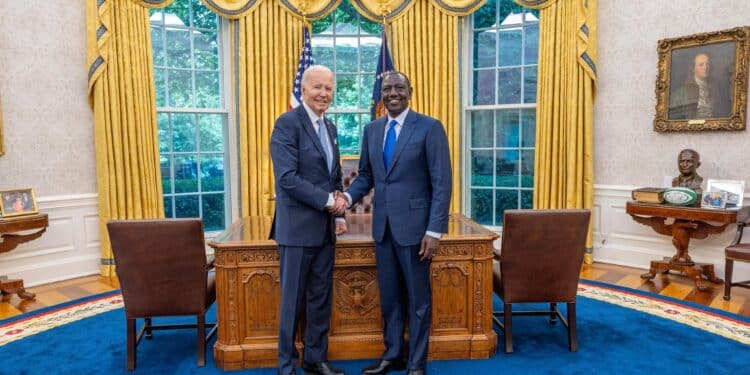
The education sector is also part of the yield: USD 3.3 million is allocated for Kenyan undergraduates to pursue STEM studies in U.S. universities, and USD 500,000 has been earmarked for joint research initiatives between Kenyan and American institutions.
Earlier this year, a sub-national engagement was enhanced via a landmark Memorandum of Understanding (MoU) signed with the State of Nebraska, aimed at expanding opportunities in diaspora engagement, skills training, technology transfer, agriculture, and labor exchange.
Parallel to these sectoral deals, Kenya and the U.S. are negotiating a Strategic Trade and Investment Partnership (STIP) to succeed or complement AGOA. Their aim is to reduce non‑tariff barriers, boost investment, and safeguard Kenya’s market access to the U.S. after AGOA expires.
Kenya and China
President Ruto’s state visit to China produced more than 20 bilateral trade agreements and MoUs across sectors such as infrastructure, agriculture, health, education, and ICT. The two nations also elevated their relationship to a “Comprehensive Strategic Partnership in the New Era.”
Among the headline deals:
- China Wu Yi has committed USD 150 million (Ksh19.4 billion) to create a Special Economic Zone in Kikambala, focusing on manufacturing, processing, and logistics. The project is expected to generate about 5,000 jobs.
- Rongtai Steel pledged USD 100 million (Ksh12.9 billion) for steel expansion in Lukenya, along with a Research & Development center, expected to create around 3,000 jobs.
- In agriculture, the Zonken Group proposed an investment of Ksh51.8 billion (approximately USD 400 million) for aloe vera processing, vineyards (including grape and apple cultivation), and processing facilities in Baringo.
- A large poultry project was also announced in Kajiado, targeting half a million birds and employing around 500 people.
- In tourism, the Hunan Conference Exhibition Group committed USD 23 million (Ksh29.7 billion) toward luxury infrastructure development in Nairobi.
Also Read: China Top Official Details Why Ruto’s Visit is a Milestone
Also, in August, President Ruto announced that China has agreed to lift all tariffs on key Kenyan agricultural exports, including tea, coffee, and avocados, marking a major trade milestone as Nairobi’s relationship with Beijing continues to stir tensions with the United States.
Ruto told a presidential private sector roundtable in Nairobi that a high-level agreement had been concluded with Chinese authorities following sustained bilateral discussions.
Germany: Migration, skills & mobility
In 2024, Kenya and Germany 2024 signed a Comprehensive Migration and Mobility Partnership, targeting the structured and legal movement of skilled Kenyan workers to Germany to fill labor gaps. The agreement emphasizes the protection of workers’ rights, vocational training in Kenya, and German language skills to aid integration. Though not a classic trade deal for goods, it also encompasses cooperation in investment, climate action, and development.
The partnership builds on past agreements, including a double taxation avoidance agreement signed in 1977 and a Bilateral Investment Treaty (BIT) concluded in 1996. Negotiations were accelerated after German Chancellor Olaf Scholz visited Kenya in 2023, culminating in a formal signing in Berlin in September 2024 with technical support from the International Labor Organization (ILO).
Kenya and the UAE
A Comprehensive Economic Partnership Agreement (CEPA) was signed between Kenya and the United Arab Emirates in January this year, marking the UAE’s first mainland Africa deal. The CEPA aims to eliminate trade barriers, simplify customs procedures, and deepen cooperation in investment, services, digital trade, and sustainability. In 2023, the trade volume between Kenya and the UAE reached KSh 445 billion. The UAE is Kenya’s sixth-largest export market and second-largest import source, accounting for 16% of Kenya’s imports.
Kenya’s exports to the UAE include Ksh9.9 billion in meat (over half of Kenya’s total meat exports), Ksh5.2 billion in fruits (especially pineapples, avocados, and mangoes), and Ksh5.6 billion in vegetables and flowers.
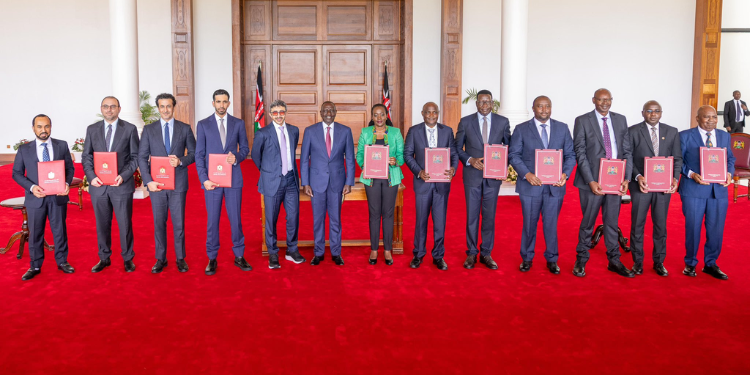
Beyond CEPA, seven MoUs were signed covering military cooperation, energy, transport, customs, joint business council, railway development, and private sector integration.
The agreements will promote clean energy (solar, wind, geothermal), rail and aviation projects, knowledge transfer, regulatory alignment, and border trade enforcement.
Other countries
Kenya also revitalized its strategic partnership with the United Kingdom. President Ruto and UK Prime Minister Keir Starmer committed to doubling bilateral trade over the next five years, with particular emphasis on green growth, digital start-ups, and infrastructure — notably the Nairobi Railway City project. The existing Kenya–UK Defense Cooperation Agreement is also set for deeper execution.
With the Netherlands, Kenya has signed three MoUs and a Letter of Intent in agriculture, industrialization, tourism, climate action, regional security, and people‑to‑people exchange. This is expected to boost Dutch investment in Kenya and accelerate job creation.
On the Korea front, Kenya and South Korea reaffirmed six decades of relations across trade, innovation, and green growth. Korea is actively engaged in flagship Kenyan projects at Konza Technopolis, the Kenya Advanced Institute of Science and Technology (Kenya‑AIST), and vaccine science initiatives. Future cooperation is anticipated in renewable energy, climate adaptation, green hydrogen, and sustainable infrastructure development.
Follow our WhatsApp Channel and X Account for real-time news updates
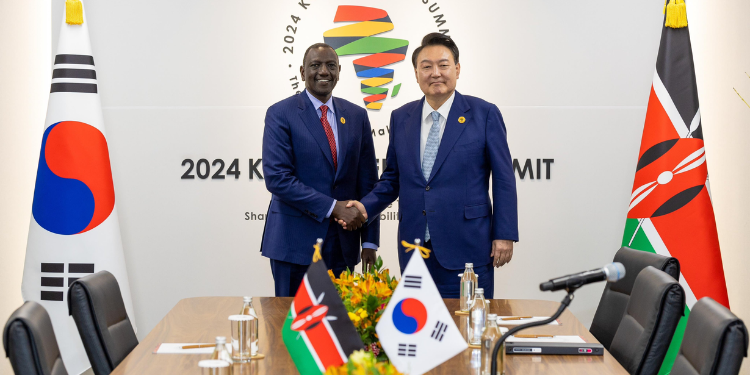


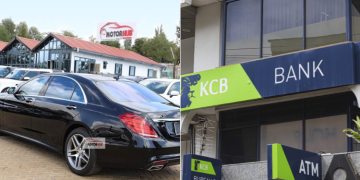


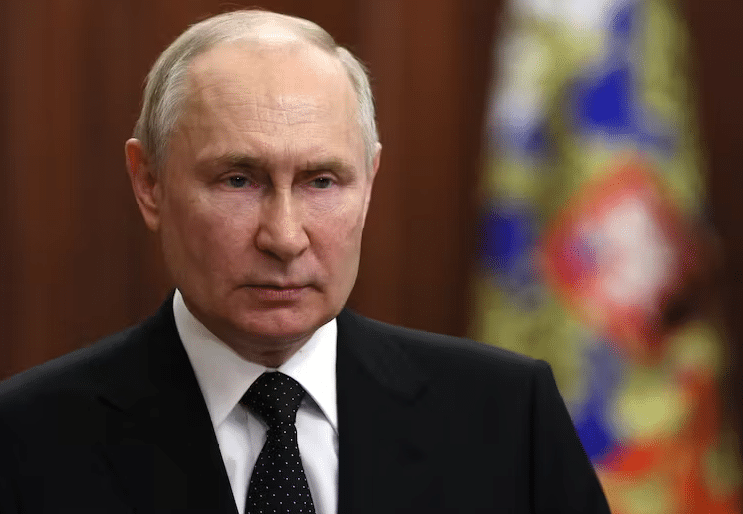
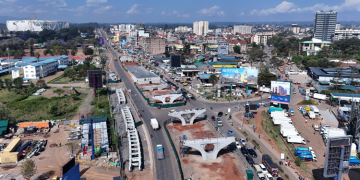
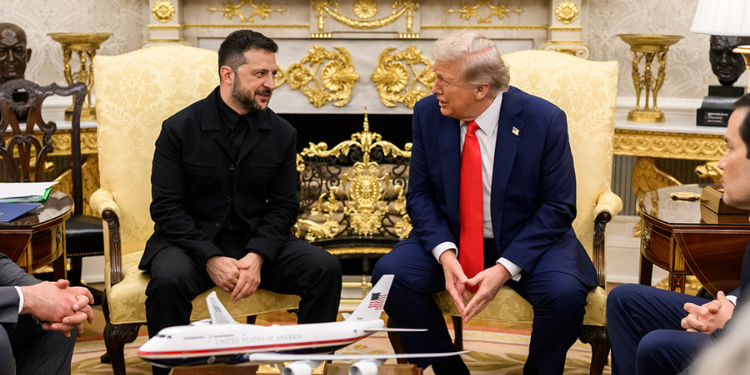
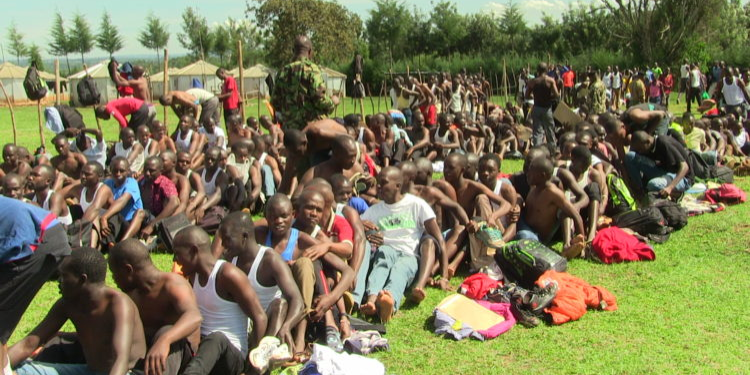
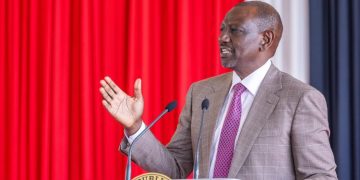







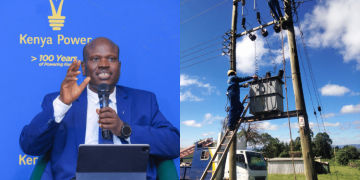
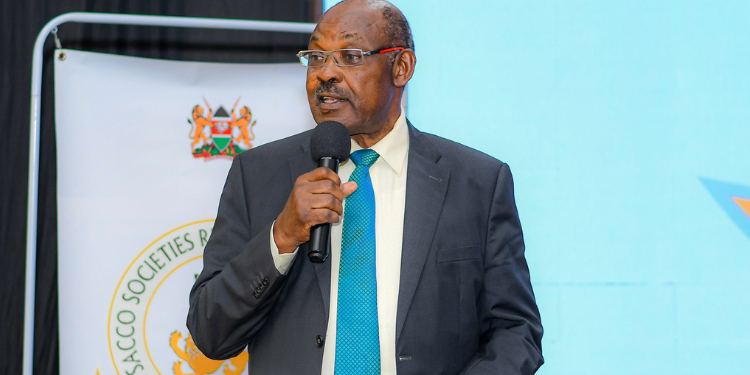

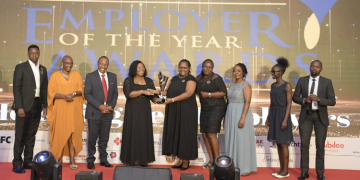

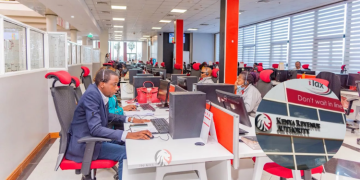
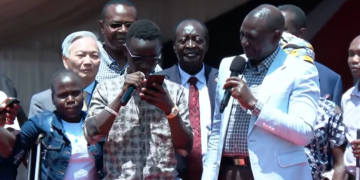




























![Senator Allan Chesang And Chanelle Kittony Wed In A Colourful Ceremony [Photos] Trans Nzoia Senator Allan Chesang With Channelle Kittony/Oscar Sudi]( https://thekenyatimescdn-ese7d3e7ghdnbfa9.z01.azurefd.net/prodimages/uploads/2025/11/Trans-Nzoia-Senator-Allan-Chesang-with-Channelle-KittonyOscar-Sudi-360x180.png)


















